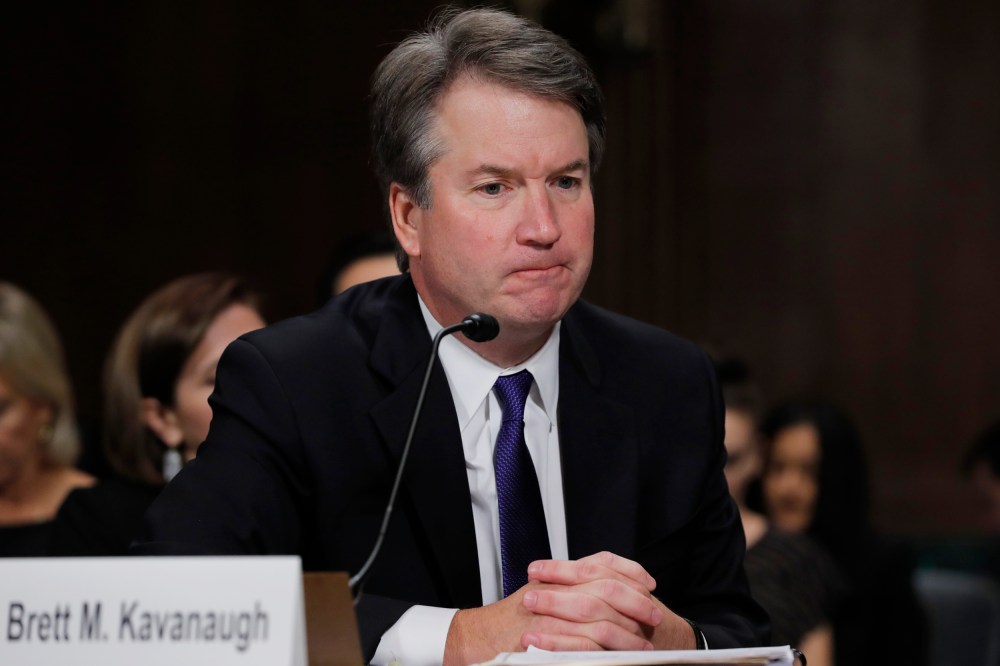In recent days, we learned that the 4,500 tips reported to the FBI about Brett Kavanaugh’s suitability to serve as a Supreme Court justice largely went uninvestigated. Worse, the FBI handed the tips over to President Donald Trump’s White House, the administration determined to get Kavanaugh confirmed by pretty much any means necessary.
The FBI handed the tips over to President Donald Trump’s White House, the administration determined to get Kavanaugh confirmed by any means necessary.
Needless to say, presidents get to nominate whomever they want to the Supreme Court. But once the nominee is selected, the normal rules of governmental convention typically kick in: The FBI does a background investigation; the American Bar Association rates the nominee on a scale from “fully qualified” to “not qualified”; the Senate goes about fulfilling its constitutional “advice and consent” responsibilities; etc.
On July 9, 2018, Trump nominated Kavanaugh to the highest court in the land. First reactions were predictable: Republican praise and Democratic condemnation. But over and above the usual partisan political wrangling, something else was brewing. Kavanaugh’s nomination became intensely controversial because, in part, of allegations of misconduct in his personal life and some unusual financial arrangements involving disappearing debts. (Kavanaugh repeatedly denied any wrongdoing.)
With multiple women alleging some kind of past misconduct, the FBI decided to set up a tip line for people to provide information that might touch on Kavanaugh’s suitability to serve on the court. This was the first time the FBI had created this kind of a tip line for a Supreme Court nominee.

A word about tip lines: As a former career federal prosecutor, I’ve dealt with lots of tip lines in trying to solve crimes. In my experience, tip lines can be valuable, but they are extremely challenging to manage. Each tip comes with the responsibility to investigate it. Indeed, when law enforcement agencies set up these tip lines, the people who provide information have legitimate expectations that their information will be handled professionally, responsibly and with due diligence.
For the past two years, Senate Democrats had been seeking information from the FBI about the Kavanaugh investigation. Sen. Sheldon Whitehouse, D-R.I., recently released a letter from Assistant FBI Director Jill C. Tyson, dated June 30, indicating that the FBI received thousands of tips and passed the information on to the White House counsel’s office. The letter includes plenty of bureaucratic mumbo jumbo, disclaimers and caveats. But boiled down to its essence, the FBI asserts that when it does background investigations for the White House (as opposed to criminal investigations), it does not “investigate” the information unless the White House requests an investigation. In short, when it conducts a background investigation for the White House, it seems, the FBI is little more than a message-forwarding service. What could possibly go wrong?












